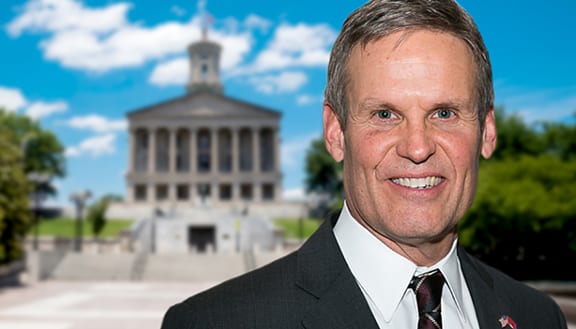By Rosetta Miller Perry
Governor Bill Lee’s record in matters of race and social justice isn’t one to salute. The latest example was evident as Knoxville’s Kristi Davis was sworn in Monday as Tennessee’s newest member of the Court of Appeals. She was appointed to the court by Lee just over 60 days ago. She’s been a judge in Knoxville since 2014, and is the second woman judge to serve on the Court of Appeals from the Eastern Division and sixth woman to serve on the Court of Appeals.
But she’s right in line with Lee’s other appointments in that he seems unable, unwilling, or both to consider any Black judges for his appointments. This also aligns with his refusal for weeks to meet with demonstrators who were protesting systemic racism and police misconduct directly across the street from Legislative Plaza. His response was to persuade his legislative comrades to ram through a dubious bill that could result in someone who gets arrested for protesting eventually being convicted of a felony and losing their right to vote.
Indeed, Lee’s attitude towards the Tennessee Black Caucus of State Legislators is currently so bad he was called out in a Zoom meeting held a couple of weeks ago. Caucus chairman G. A. Hardaway (D-Memphis) publicly blasted his attitude towards both the protesters and the Caucus.
“Those kids were peacefully protesting and they asked for an opportunity to speak with the governor,” Hardaway said. “They stayed there faithfully (for) 62 days, asking to speak with him, and he wouldn’t do it.” He added that Lee’s “refusal to speak with those young people” sparked anger among caucus members, who then asked for a meeting with Lee in a letter“Instead of just hearing them out, Lee called a special session so the Republican Senate could push through a bill making capitol protest a felony,” Hardaway said.
“Then he calls to meet with the caucus. I told him, ‘I have to see if the caucus wants to meet with you, sir.’ It took him so long to respond to us.”
What makes Lee’s failures in the areas of race and social justice more galling is that he is an outspoken Christian. He frequently cites his faith as the primary foundation of his life and the motivation behind his actions. He also speaks a lot about individual rights and freedoms, which is supposedly the main reason he didn’t push for a mandatory mask rule statewide despite the rising number of COVID-19 infections and the increased death total.
So the Tribune is asking a very simple, basic question. Why won’t the Governor make justice for all citizens a major part of his agenda, and why is he seemingly unable to find any Black judges to fill open positions in key courts? Why is their such hostility between him and members of the Legislative Black Caucus, and why would he advocate for legislation that would make it easier for people to lose their voting rights just because they’re exercising their constitutional rights to protest?
One thing you always hear whenever Blacks and other people of color demand substantive action is you can’t legislate morality, and any mention of goals and timetables represents the imposition of a quota system. So we’re sure that if we suggest Governor Lee comprise a list of Black candidates for possible judicial appointments in the future, his right-wing supporters will immediately cry that this is wrong, that only the best people should be considered, that the only thing that matters is merit, etc. etc.
Well it’s obvious to us there are Black judicial candidates whose track records merit consideration, but they aren’t getting it from this administration. So the time has come for fresh ideas and new approaches if Governor Lee truly wants to show his critics he is a fair and compassionate man, someone who does believe in equitable and fair treatment of all groups in this state, not just the elite and privileged ones or his supporters.
The Tribune will be watching to see how he reacts and responds. So far, we’re not encouraged.



